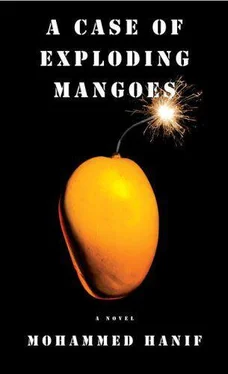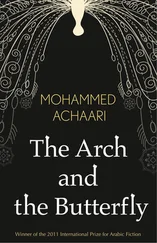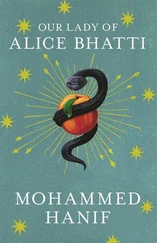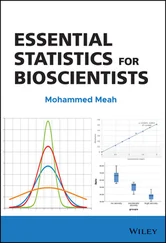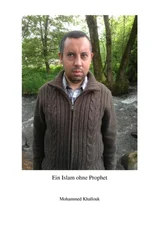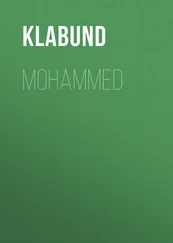“What?”
“It’s a medicine if you take it pure. Mix it with metal and it becomes poison. You might feel as if you are drugged for a while, but in the end it will kill you. Try this. Put a drop on the point of a knife, scratch an elephant’s skin with it and the elephant will drop dead. Elephant might dance first. Elephant might think he’s got wings. Elephant might drag his feet. But elephant will drop dead in the end.”
The moon shone through a transparent cloud and Uncle’s shadow shrunk to his own length as if he was being folded into a manageable size.
“How much for a shot?” I said, slipping my hand into my empty pocket, fully aware that Uncle Starchy never charged for his wares.
“Who do you think I am, sir? A drug pusher?” He was back to his usual mumbling self. The light in his eyes was already fading.
“I need to take care of some family business,” I said apologetically.
“He is drained now.” He patted his jute sack. “It’ll take him another week to produce what you need.”
On the seventh day I opened the stack of freshly starched uniforms that Uncle Starchy had deposited on my bed, and a finger-sized glass phial rolled out with a few drops of amber liquid sticking to its bottom.
I am offered tea, probably as a reward for completing the first test two minutes before the allotted twenty-five minutes. I hate tea, but the hot syrup singes the back of my throat and for a moment the smell that had lodged itself on my palate is burnt away.
The second test has no questions, just pictures. Not proper pictures but some crazy bugger’s abstract version of life in which you can’t tell whether it’s an amoeba or a map of India’s strategic defence capabilities.
Careful, I tell myself. I linger over my cup of tea. This is where they can really tell the loonies from borderline geniuses like me.
The first picture, I swear, is of a fox’s severed head.
“Lake. Bermuda Triangle, maybe,” I say.
Every third month there is an article in Reader’s Digest about aeroplanes disappearing over the Bermuda Triangle. It has to be the sanest answer. I can see that the doctor is scribbling down my answers; in fact, he is writing down much more than I am saying.
There is a giant bat hanging upside down in the second picture.
“Bow tie.”
“Anything else come to your mind?” he asks.
“A pink-and-black bow tie. A very big bow tie.”
I am shown two penises attacking each other.
“Military boots,” I say. “Military boots at ease.”
A man hunched in the middle of a mushroom cloud.
“A hurricane. Maybe an underwater submarine.”
Bloodthirsty witches are wrestling.
“Horseshoe.”
A pair of baby pigs stare at me.
“Yoda in the mirror.”
The last picture is as clear as the painter of these sick pictures could make them; a pair of testicles placed on a block of pink ice.
“Mangoes,” I say. “Or some fruit. Maybe on ice.”
I sit and stare into the empty cup of tea while the doctor records his last observations feverishly on his notepad.
He is definitely in a hurry. He throws his pictures, papers, pencil in his briefcase, wishes me luck—“Good luck, young man”—and is already standing at the door, adjusting his beret; another Medical Corps insignia, another pair of snakes with their tongues out.
“Sir, why were you sent—?”
“Remember, young man, our motto is To do or die. Never ask .”
“Sir. Medical Corps’ motto is to To serve humanity without —”
“Look, young man, I have to catch a flight to Islamabad. They want the results back immediately. They are probably trying to find out if you know what you have been doing. Do you?”
“I haven’t done anything.”
“That answer doesn’t figure in this questionnaire so I can’t really include it in my assessment. You can tell him that.”
He signals to the soldier who brought me from the bathroom and who has suddenly appeared in the doorway.
“Good luck. It seems you are from a good family.”
The soldier doesn’t blindfold me. He walks me into a room that is trying very hard to look like a torture chamber. A barber’s chair with rubber straps on its armrests is connected to amateurish-looking electrical devices. An assortment of canes, leather whips and scythes are arranged on a table along with a glass jar of chilli powder. Nylon ropes hang from a hook on a wall and a pair of old tyres is connected to the ceiling with metal chains, probably to hang the prisoners upside down. The only new item is a white Philips iron, unplugged. A torture chamber that doubles as a laundry room, I wonder. It all seems decorative, a bit like an abandoned theatre set. But then I look up at the ceiling, see splashes of dried blood and, looking around again, realise that all the paraphernalia is functional. I still can’t figure out how the hell they managed to splash someone’s blood onto the ceiling.
“Sir, please take off your uniform,” the soldier says respectfully.
I guess I am about to find out.
“Why?” I say, trying to muster up some officer-like dignity.
“I want to make sure there are no marks on your body.”
I take off my shirt, slowly. He takes it from me and puts it on a hanger. My boots are put aside. He folds my trousers carefully. I spread my hands, challenging him to come and do whatever it is that he needs to do. He points to my underwear.
I oblige.
He goes around me. I stand upright, hands folded at the back, not fiddling, not scratching. If he wants to see me naked, he’ll not get the satisfaction of looking at a coy pansy.
I am waiting for the interrogation to start but he doesn’t seem to have any questions.
“Sir, please stand in a corner and don’t touch anything.” He plugs the iron into a socket before leaving the room.
Even professional torturers must procrastinate sometimes, I tell myself. Or maybe it’s some kind of do-it-yourself torture system; you stand and stare at these instruments and imagine how your various body parts would respond to them. I try not to think about the amber light on the iron. Major Kiyani did say no marks.
He returns with the yellow-green file and a new-found interest in my family.
“Are you related to the late Colonel Shigri?”
I take a deep breath and nod.
“I came to his funeral. You probably don’t remember me.”
I search his face for any clues to his intentions.
“I hope you’ll forgive me, sir. I am only doing my duty.”
I nod my head again as if I have already forgiven him. He seems like someone who wants to help but doesn’t want to be misunderstood.
“You know he built this place. On two weeks’ notice. I was the construction supervisor.”
“I thought Mughals built this place.”
A torture chamber is not exactly the right place to discuss the achievements of your ancestors.
“No, sir, this extension, the offices, the barracks and all this stuff underground. He ordered the construction.”
Nice work, Dad.
The file in his hand is marked ‘Confidential’ and carries my air force number. I wonder what it says about me. About Obaid? About us?
“Did he order this as well? Did he use to…?” I wave my hand towards the barber’s chair and chains hanging from the ceiling.
“The Colonel was only doing his duty.” He shuts the file and clasps it to his chest under his folded arms. I knew Dad was running the logistics of guerrilla war in Afghanistan for General Zia. I knew he was liaising between the Americans who were funding the war and the ISI, which was responsible for distributing these funds to the mujahideen. But he never told me his duty involved building and managing facilities like this one.
Читать дальше
